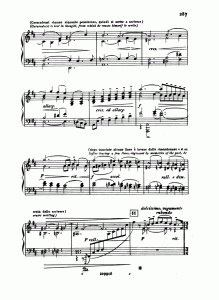sung by Peter Anders, German tenor (b. 1908)
sung by Lisa della Casa, Swiss soprano (b. 1919) and Helge Roswaenge, Danish tenor (b. 1897)
sung by Herta Talmar, Austrian soprano (b. 1920) and Franz Fehringer, German tenor (b. 1910)
sung by Erika Köth, German coloratura soprano (b. 1925) and Rudolf Schock, German tenor (b. 1915)
sung by Maria Leyer, Helmut Froschauer, and Thomas Dewald
Der Graf von Luxemburg Highlights
conducted by Franz Bauer-Theussl, Vienna Volksoper Orchestra and Chorus
soloists Hilde Brauner, Friedl Loor and Karl Terkal
Bist du’s, lachendes Glück begins at 13:45
Bist du’s, lachendes Glück
from the 1909 operetta “Der Graf von Luxemburg”
Music by Franz Lehar
German libretto by Alfred Willner, Robert Bodanzky, and Leo Stein
Lyrics:
Bist du’s, lachendes Glück, das jetzt vorüber schwebt,
ist das der süsse, goldige Traum, den man nur einmal lebt?
Sagt nicht alles in mir, sei gescheit,
heute winkt dir das Glück.
Versäum’, verträum’ ich die Zeit,
sehnst umsonst dann zurück,
die Lieb’ in Lust und Leid.
Translated into English by Liliane & Varner Nickle:
Bist du’s, lachendes Glück, das jetzt vorüber schwebt,
It’s you, the laughing happiness, which is now floating past,
ist das der süsse, goldige Traum, den man nur einmal lebt?
is this the sweet, golden dream that one lives through only once?
Sagt nicht alles in mir, sei gescheit,
Do not say anything to me, be wise,
heute winkt dir das Glück.
for you, today beckons you the bliss.
Versäum’, verträum’ ich die Zeit,
If I missed, then dream away the time,
sehnst umsonst dann zurück,
wasted yearning but back again,
die Lieb’ in Lust und Leid.
such as the love in joy and sorrow.
Phrasing:
Bist du’s / la-chen-des Glück / das jetzt vor-ü-ber schwebt /
ist das der süs-se / gol-di-ge Traum / den man nur ein-mal lebt /
Sagt nicht al-les in mir / sei ge-scheit /
heu-te winkt dir das Glück /
Ver-säum’ ver-träum’ ich die Zeit /
sehn-st um-sonst dann zu-rück /
die Lieb’ in Lust und Leid!
[ Instrumental:
Bist du’s / la-chen-des Glück / das jetzt vor-ü-ber schwebt/
ist das der süs-se / gol-di-ge Traum / den man nur ein-mal lebt / ]
Sagt nicht al-les in mir / sei ge-scheit /
heu-te winkt dir das Glück /
Ver-säum’ ver-träum’ ich die Zeit /
sehn-st um-sonst dann zu-rück /
die Lieb’ in Lust und Leid!
Der Graf von Luxemburg score, in original German:
http://imslp.org/wiki/Special:ImagefromIndex/115491
“Bist du’s, lachendes Glück” is on pages 91, 92, and 93









